A Chinese Christmas Posted by sasha on Dec 24, 2011 in Uncategorized
The holiday season is upon us yet again, and while most people don’t associate China with Christmas (圣诞节 – shèng dàn jié), the holiday is becoming more and more popular in the Middle Kingdom. For the past month, the Christmas spirit has been alive and well here in Beijing – in subway stations, shopping centers, restaurants, and bars all across the city. Everywhere you go, the sounds of “Jingle Bells” and “Rudolph the Red Nosed Reindeer” follow you. Department stores are stocked and ready to help people “deck the halls”, with Christmas trees, stockings, tinsel, ornaments, and any other Christmas trinket you could imagine prominently on display. In malls all over town, there are Christmas sales drawing throngs of holiday shoppers. While many people here do not know or understand the history and traditions of this holiday, one thing is clear – they sure love the shopping that accompanies it.
A short video about how China celebrates Christmas.
In restaurants big and small, waiters and cooks have been wearing red and white hats, and the image of Santa Claus (圣诞老人 – shèng dàn lǎo rén – lit. Christmas old person) has been everywhere you look. For the fourth year in a row, a huge group of Santas paraded around the capital, spreading holiday cheer and lifting spirits – not in the making people feel good kind of way, but in the actual, literal lifting of glasses full of booze. Santa Con IV was bigger and better than ever this year, proving that Old St. Nick is here to stay in China.
While Chinese children enjoy the fun that comes along with Christmas, they are quick to point out the fantastic aspects of the story – “How does he come down the chimeny? He’s too fat!” Even at landmarks like the Bird’s Nest (鸟巢 – niǎo cháo), there stands a giant, well-lit Christmas tree. If there’s one thing I’ve noticed in my time living here in China, it’s that people here love a reason to celebrate. That being said, it comes as no surprise that China has embraced Christmas. Plus, it’s good for business. China makes 90% of the world’s plastic Christmas trees, although the troubled world economy might hurt the lucrative business this year.
It’s not just the pretty decorations and presents that have peaked China’s curiosity, though. Many of my students have asked me about the story behind Christmas. After all, Christmas in Chinese, or 圣诞节 (shèng dàn jié) literally translates as “holy birth festival.” I’ve noticed more and more that people here are curious about the story of Jesus (耶稣 – yē sū), and not just the secular traditions Christmas has to offer. There are many Christians (基督教徒 – jī dū jiào tú) here in China, and they go to midnight mass (午夜弥撒 – wǔ yè mí sā) just like folks back in the US. According to Christians, Christmas is an important holiday (圣诞节对基督教徒来说是个重要节日 – shèng dàn jié duì jī dū jiào tú lái shuō shì gè zhòng yào jié rì). While Christmas still isn’t a national holiday, it’s clear that this is one holiday that is here to stay in China.
From all of us here at Transparent Chinese, we wish you a Merry Christmas (我们祝你圣诞快乐 – Wǒ men zhù nǐ shèng dàn kuài lè)!

Build vocabulary, practice pronunciation, and more with Transparent Language Online. Available anytime, anywhere, on any device.
About the Author: sasha
Sasha is an English teacher, writer, photographer, and videographer from the great state of Michigan. Upon graduating from Michigan State University, he moved to China and spent 5+ years living, working, studying, and traveling there. He also studied Indonesian Language & Culture in Bali for a year. He and his wife run the travel blog Grateful Gypsies, and they're currently trying the digital nomad lifestyle across Latin America.




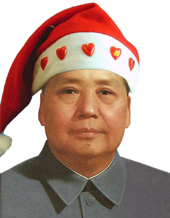
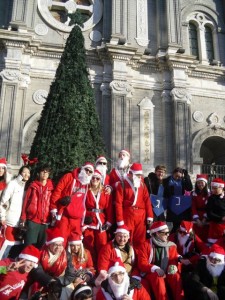
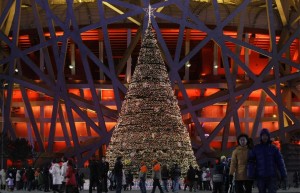
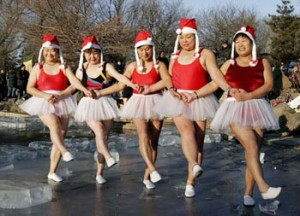
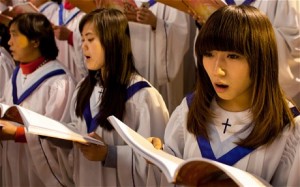


Leave a comment: